
FBI Deputy Assistant Director Peter Strzok, testifies before a House Judiciary Committee joint hearing on “oversight of FBI and Department of Justice actions surrounding the 2016 election” on Capitol Hill in Washington, Thursday, July 12, 2018. (AP Photo/Manuel Balce Ceneta)
The stunning amount of nefarious behavior outlined in the IG report has many of us wondering how on earth Michael Horowitz could have concluded that the political bias of members of the FBI’s Crossfire Hurricane team had not influenced their decisions and actions. Even a cursory look at the report provides enough material to justify criminal referrals for several of them. Instead, we have former FBI Director James Comey announcing he’s been exonerated. And former FBI lawyer Lisa Page was so emboldened by Horowitz’s findings that she’s now filed a lawsuit against the DOJ and the FBI claiming that, by releasing her text message exchanges with former lover and co-worker, FBI agent Peter Strzok, they violated the Privacy Act. As pundits and lawmakers sift through the report, it has become clear that the wrongdoing went even deeper than had been thought, leading even liberal bleeding heart, MSNBC’s Andrea Mitchell, to acknowledge that “very clear mistakes were made by the FBI” and they were “pretty egregious.” (The IG report can be viewed here.)
In his Wednesday podcast (below), Fox News contributor and investigator Dan Bongino, who has a knack for finding what others miss, points out several previously unknown facts about actions taken by members of the Crossfire Hurricane Team in mid-August 2016.
We’ve heard the following text message from Strzok to Page regarding a conversation they’d had in a meeting with then-FBI Deputy Director Andrew McCabe on August 15, 2016: “I want to believe the path you threw out for consideration in Andy’s office – that there’s no way he gets elected – but I’m afraid we can’t take that risk. It’s like an insurance policy in the unlikely event you die before you’re forty.”
Don’t roll your eyes! This is important.
The IG report tells us something else happened on August 15th. The FBI’s Office of the General Counsel (OGC) informed the Crossfire Hurricane team “there was an insufficient basis for them to proceed with a FISA application” for George Papadopoulos.” (One of the functions of the OGC is to prepare applications for the FISA Court.) The Crossfire Hurricane team dropped the matter.
On August 15th, the team requested assistance from OGC to prepare a FISA application for Carter Page. Later in August, the team was told the OGC had consulted with the attorneys in the Office of Intelligence (OI) in the DOJ’s National Security Division (the OI prepares FISA applications and presents them to the FISA Court), there was insufficient information to establish probable cause (PC) for a warrant to spy on Page.
Bongino: “So they run into McCabe’s office and say, hey, we need some kind of insurance policy.”
The report says the OIG (Horowitz’ office) was told that Comey was briefed about the Friendly Foreign Government (FFG), Australia, report of the Downer/Papadopoulos meeting in a London bar, on August 15th. The report also says that Andrew McCabe’s contemporaneous notes say he was informed previously.
Please note that the FBI has claimed publicly that the reason they opened Crossfire Hurricane on July 31, 2016 was because of the FFG meeting.
The IG report states:
The Crossfire Hurricane team told us that the proposal for FISA coverage targeting Carter Page originated from the team, not an instruction from management. The team also told us that its interest in obtaining a FISA was based upon Page’s prior contacts with known Russian intelligence officers, which the team believed made him most receptive to receiving the offer of assistance from the Russians reported in the FFG information (described in Chapter Three) provided to the FBI in late July 2016. Case Agent 1 said that he had hoped that emails and other communications obtained through FISA electronic surveillance would help provide valuable information about what Page did while in Moscow in July 2016 and the Russian officials with whom he may have spoken.
For these reasons, on August 15, 2016, Case Agent 1 emailed a written summary on Carter Page to the OGC Unit Chief, stating that he thought the information provided “a pretty solid basis” for requesting FISA authority. This summary, which a Staff Operations Specialist (SOS) prepared, briefly described Page’s Russian business and financial ties, his prior contacts with Russian intelligence officers, and his recent travel to Russia. According to Case Agent 1, both he and the SOS believed that they had enough information to establish the probable cause necessary to request FISA authority on Carter Page.
The Crossfire Hurricane team omitted the very important fact that all of Page’s Russian connections arose because of his work on behalf of the CIA.
Bongino’s Analysis: “They walk into McCabe’s office trying to get warrants to spy on Page and Papadopoulos, who they’ve been looking at for a long time. They don’t have the information, the probable cause, to get a warrant because neither one of these two did anything wrong…They double and triple down and look for an insurance policy. The insurance policy is the FFG tip, the friendly foreign government tip…Papadopoulos told Downer that there was a Russian offer of help to us…the us is important…the FBI interprets that to mean that Carter Page “is the most receptive to receive the offer of assistance from the Russians.” Carter Page has had interactions with Russians in the past, so he’s clearly receptive to Russian information. The reason Carter page had had contact with the Russians before that made him “the most receptive” was because he was working for the CIA on behalf of the U.S. government to nail these Russians to the wall…That was the insurance policy. The foreign government tip was the insurance policy to retroactively go back and make Carter Page look like a Russian agent even though he was a CIA asset.”
If you reread the second paragraph from the passage above, the FBI agent emails his summary on Page to the OGC chief saying it provided a “pretty solid basis” to obtain a warrant to spy on Page. Amazing.
Bongino notes that this email was sent on the same day as the Page/Strzok text about the insurance policy.
Bongino: “So, now we’re crystal clear. The insurance policy was the FBI knowingly lying and manipulating about Carter Page pretending he wasn’t an asset for the CIA, but an asset for the Russians. And manipulating emails to make a FISA judge believe what were benign, mundane contacts with Russians and some that were not benign, but were on behalf of a U.S. government mission were actually evidentiary data points that Carter Page was a U.S. spy worthy of spying on.”
The IG report states:
On or about August 17, 2016, in response to the Crossfire Hurricane team’s prior Carter Page name trace request, the Crossfire Hurricane team received a memorandum from another U.S. government agency detailing its prior interactions with Page, including that Page had been approved as an “operational contact” for the other agency from 2008 to 2013. The memorandum also detailed the information that Page had provided to the other agency concerning his prior contacts with certain Russian intelligence officers. As detailed in Chapters Five and Eight, the Crossfire Hurricane team did not accurately describe to OI the nature and extent of the information that the FBI received from the other agency, which we found was highly relevant to an evaluation of the FISA request.
The “other agency” is likely the CIA. So, the CIA sends a memo to the FBI team explaining that Page was working for them on behalf of the U.S. and Horowitz concluded says they did not “accurately describe” this to the OI, which he found “highly relevant.”
I call it fraud.
Bongino: “By August 15th, they are getting word from the CIA, ‘Stay away. This is our guy.'”
They disregard this information.
Bongino: “And then, they [members of the FBI’s crossfire Hurricane team] manipulate the email. Carter Page was a CIA asset. Let’s insert the word “not” in there. Carter Page was not a CIA asset.”
And the finale from the report:
The Use of Confidential Sources (Other than Steele) and Undercover Employees
As discussed in Chapter Ten, we determined that, during the 2016 presidential campaign, the Crossfire Hurricane team tasked several CHSs, which resulted in multiple interactions with Carter Page and George Papadopoulos both before and after they were affiliated with the Trump campaign, and one with a high-level Trump campaign official who was not a subject of the investigation.
They were spying on Page and Papadopoulos before they joined the Trump campaign? Why? Bongino tells us that Papadopoulos was an advisor to the Ben Carson campaign before he joined the Trump campaign.
Bongino: “Ladies and Gentlemen, how many campaign operatives and campaigns exactly were their confidential sources spying on?…When was it announced that Page and Papadopoulos planned to join the Trump campaign? March 2016…All of a sudden, traffic starts to spike dramatically.
This is a massive, massive scandal…I don’t think they were just spying on the Trump campaign.”
Summing Up:
The FBI spied on Carter Page and George Papadopoulos both before and after they were affiliated with the Trump campaign.
The FBI initially tried to obtain FISA warrants to spy on both Carter Page and George Papadopoulos. On August 15th, the FBI’s OGC refused both, saying there was insufficient probable cause.
The CIA sent a memo to the FBI in August 2016 to inform them that Carter Page was working for them, that he was not a Russian spy.
“The insurance policy was the FBI knowingly lying and manipulating about Carter Page pretending he wasn’t an asset for the CIA, but an asset for the Russians. And manipulating emails to make a FISA judge believe what were benign, mundane contacts with Russians and some that were not benign, but were on behalf of a U.S. government mission were actually evidentiary data points that Carter Page was a U.S. spy worthy of spying on.”
Questions:
Why was the FBI spying on George Papadopoulos before he was named as a Trump advisor?
Since Papadopoulos was a foreign policy advisor to the Ben Carson campaign before he moved to the Trump team, is it possible the FBI was prepared to spy on the campaign of whichever Republican candidate won the nomination?
As analysts dig deeper into the IG report, Michael Horowitz’ conclusion that the FBI had sufficient cause to open their counterintelligence investigation into the Trump campaign becomes more difficult to believe. The FBI is a highly selective agency and it can be assumed that anyone who has passed muster possesses a reasonably high level of intelligence. This doesn’t make them immune to mistakes. However, it does provide a certain amount of assurance that errors will be kept to a minimum. Similar to James Comey’s exoneration statement of Hillary, the IG lists one egregious deed after another, then tells us they were unintended. To quote Hillary Clinton, the acceptance of the countless “mistakes” and the “poor judgement” of top-level FBI officials outlined in the IG report requires the willing suspension of disbelief.
Watch the video below.


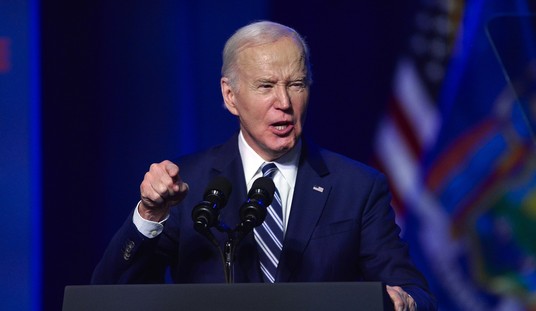



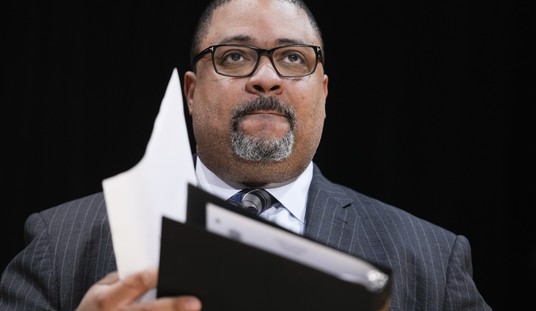


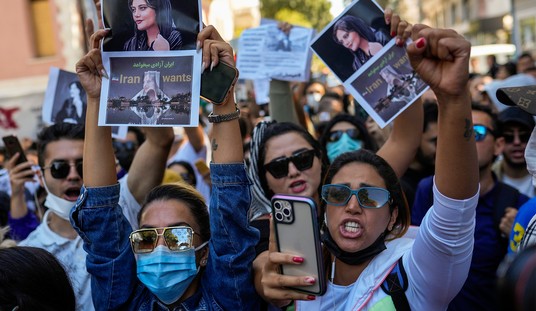

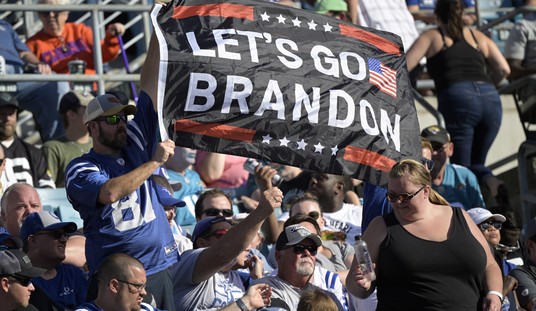

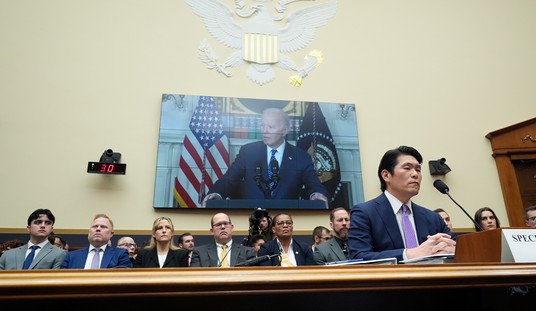
Join the conversation as a VIP Member